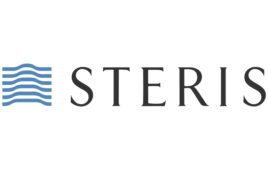 A team of researchers at Rensselaer Polytechnic Institute developed a machine that uses ultraviolet (UVC) light to sterilize protective masks for reuse during the COVID-19 pandemic.
A team of researchers at Rensselaer Polytechnic Institute developed a machine that uses ultraviolet (UVC) light to sterilize protective masks for reuse during the COVID-19 pandemic.
In collaboration with research partners at Mount Sinai, the research team developed a the machine using UVC to sterilize thousands of masks in a matter of weeks.
“At Rensselaer, we are focused on solving global challenges, and the COVID-19 pandemic is certainly among the most significant of these in our lifetimes,” Rensselaer president Shirley Ann Jackson said in a news release. “Our interdisciplinary approach, combined with the passion and ingenuity of our researchers, enables us to contribute solutions in this crisis that will continue to be helpful even after it has passed.”
The UVC system is about eight feet tall by eight feet long with two UVC lamp fixtures, each containing two UVC tubes, attached vertically across from one another. Masks are hung on a series of hooks as part of a motorized belt system to pass between the two UVC sources, with the dose of radiation determined by the speed of the belt. Rensselaer center for lighting enabled systems & applications director Bob Karlicek said the system uniquely disinfects the masks from both sides.
“Since UVC radiation is a line-of-sight disinfection process, if there’s any shadow from the mask or any material blocking the access of UVC radiation to the mask, you’re not going to disinfect that part,” Karlicek said. “We elected to come up with a system that allowed us to run the masks vertically so we could simultaneously expose the masks from both the front and the back without blocking any UVC radiation.”
According to the release, Mount Sinai will test the efficacy of the system on masks that have been infected with the virus causing COVID-19, with results expected to help Rensselaer engineers adjust the speed of the belt for better results. Then, the researchers will pursue FDA approval.


